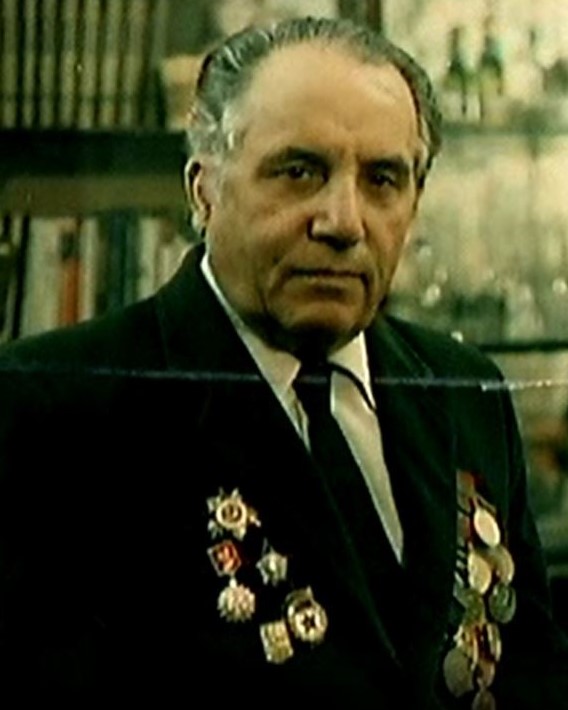Beniamin Yakubov was born in 1919 in Tashkent, Uzbekistan, in a family of Bukharan Jews. His father Elizar was a merchant and the owner of an apartment building. His maternal grandfather owned a factory. After the Revolution of 1917, they were stripped of all their property; Elizar died in 1921, and Beniamin's mother had to raise her five children on her own. The family spoke Tajik at home, but they were also fluent in Russian and Uzbek. After finishing school, Beniamin began to work as a mechanical repairman at an agricultural machinery plant.
In October 1939, Yakubov was drafted into the Red Army; he was sent to the recently occupied Eastern Poland (present-day Western Ukraine). After completing a course for subaltern commanders, he was sent to the town of Starokonstantinov as a platoon commander, in the rank of sergeant. On June 22, when the Soviet-German War broke out, Yakubov's 163rd Rifle Division was dispatched to the new western border of the USSR. The division retreated. After a week of combat, Yakubov was lightly wounded in the head. After undergoing treatment in Kharkiv, eastern Ukraine, he was transferred to the defense of Zaporizhzhia. In August 1941, the Germans took over the island of Khortytsia on the Dnieper River, part of the city of Zaporizhzhia; from this island, they could easily shell the industrial areas of the city. Yakubov's unit was ordered to oust the Germans from Khortytsia, or at least to suppress them on the island, in order to safeguard the evacuation of the Zaporizhzhia industries into the Soviet interior. In October 1941, the Red Army left Zaporizhzhia. After four days of retreat, Yakubov's unit was surrounded, and he was taken prisoner by the Germans.
Yakubov was held in a POW camp in Kryvyi Rih, a city in central Ukraine. During the selection of Soviet POWs by the Nazis, he claimed to be a Muslim "Turkestaner", giving his first name as "Islam" (instead of Beniamin). In the camp, he witnessed the Holocaust of the Kryvyi Rih Jews. In 1942, Yakubov, as a self-proclaimed "Turkestaner", was attached by the Nazis to the Turkestan Legion – a collaborationist unit staffed by men of Soviet Central Asian descent, whose task was supporting German warfare throughout Europe. In early 1943, Yakubov and a group of his comrades, ethnic Uzbeks and Tajiks, crossed over to the Soviet side. The sight of soldiers in German uniforms, speaking Russian (albeit with an Uzbek or Tajik accent) and claiming to be Soviet servicemen who wished to fight for the Red Army, made a bad impression on the Soviet soldiers. The group was disarmed and taken to the Special Department of the advancing Soviet division. After a twenty-day-long investigation of the "traitors", which was accompanied by abuse and threats, the members of the group were partly cleared of suspicion and handed over to the military tribunal. Yakubov was sentenced to ten years of imprisonment, but his sentence was commuted to service in a penal battalion. Following this decision, Yakubov arrived in the so-called "Small Land" on the Black Sea coast – an almost hopeless Soviet military operation, aiming to hold a narrow bridgehead south of Novorossiisk.
After a month in the "Small Land", Yakubov was wounded a second time; the wound entitled him to service in a regular military unit. After a five-month-long stay at a hospital in Sochi, he was attached to a reserve regiment, and then transferred to the 1201st Rifle Regiment of the 65th Army, as the commander of a mortar platoon. He saw action in Belorussia, and then in Poland and East Prussia. During the crossing of the Vistula River in January 1945, he was seriously wounded in the head, face, and arm. This wound made him unfit for service, and in mid-1945 Yakubov returned to Tashkent
In the course of the war, Yakubov was awarded the medal "For Courage" and the Order of the Red Star.
In Tashkent, Yakubov worked first as a watch repairer, and then as a clerical worker at a garment factory. Most of his relatives had settled in the Land of Israel during the civil war in Russia and Central Asia in 1918-21. In 1991, Beniamin Yakubov and his family immigrated to Israel.

